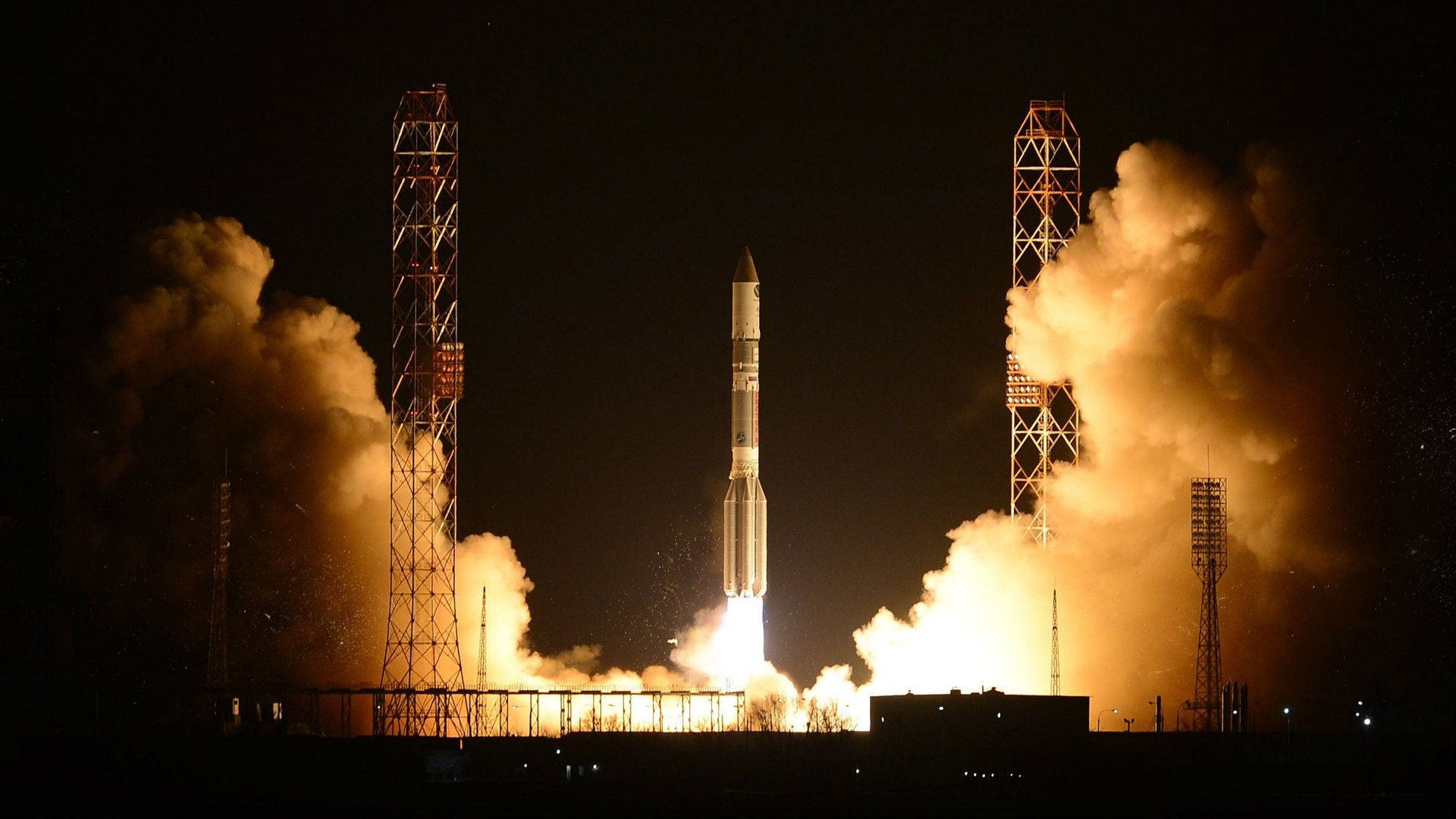It’s hard to run a satellite company when your supply rockets keep blowing up
The London-based communications company Inmarsat has a problem. It is a rather unfortunate problem, given that the firm specializes in satellite communications—namely, that the rockets it relies on to shuttle its gear up into orbit tend to blow up before they get there.


The London-based communications company Inmarsat has a problem. It is a rather unfortunate problem, given that the firm specializes in satellite communications—namely, that the rockets it relies on to shuttle its gear up into orbit tend to blow up before they get there.
The latest setback came at the weekend, when a Russian-made Proton rocket failed to deliver its payload, a Mexican satellite. The rocket burned up in the atmosphere some 160 kilometers (99 miles) above Earth. Russia’s space agency grounded future launches pending an investigation.
That means another delay for Inmarsat’s $1.6-billion Global Xpress satellite system. The third satellite in the company’s fleet is to provide global coverage for a high-speed broadband service intended for users at sea, in the air, and in remote regions. After the loss of the rocket, Inmarsat issued a statement today scrapping its previous guidance for revenue growth, and warned of a “small negative effect” on earnings this year.
This is the third delay for Inmarsat’s new system thanks to Russian rocket failures. Its second Global Xpress satellite was originally supposed to go up last year, but instead launched this February, delayed by another exploding Proton rocket.
A Proton also suffered a catastrophic problem in mid-2013.
The Proton family first went into service in 1965, with a long and distinguished history as a supply workhorse, but it has had increasingly patchy success in recent years. Particularly worrying is that there is no pattern to these persistent problems. Last month, a Soyuz rocket went haywire on its way to the International Space Station, spinning out of control before burning up on re-entry.
Inmarsat’s shares fell sharply in early trading today. When it finally gets global coverage for its Global Xpress system, the network will add $500 million in revenue within five years, the company says. But that date keeps slipping as rockets keep exploding.
A fourth satellite is currently under construction, scheduled for launch in the second half of next year. According to Inmarsat chief executive Rupert Pearce, that satellite could be delivered by Elon Musk’s SpaceX company, providing ”significant mission assurance in the case of any protracted delays in Proton’s return to flight.”